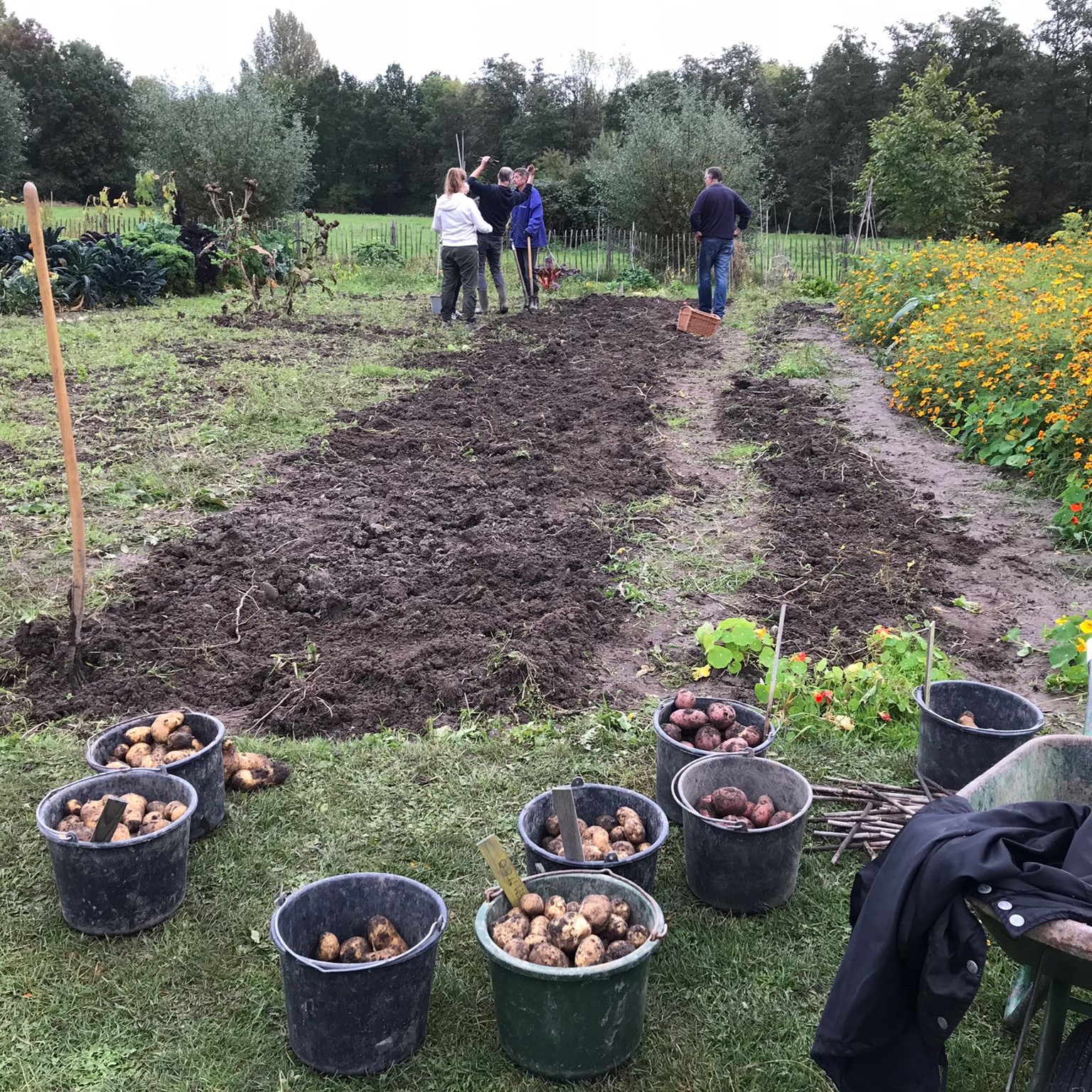Skill, craft, and poiesis-intensive innovation
DOI:
https://doi.org/10.7577/formakademisk.5415Emneord (Nøkkelord):
Craft, Skill, Food, Poiesis, Ethnography, Anthropology, Responsible InnovationSammendrag
What is craft practice? The purpose of this paper is to contrast the categorization of craft practice with that of skill and innovation. I argue for the relevance of innovative skilled practice to future-making. Both skill and craft play an important part in collective engagements with futuring. With an ethnographic methodology, typical of anthropological fieldwork, I have explored skill in dairy farming, cheese making, and currently food gardening. In all these three realms, the results of ethnographic observation are that ideational processes immediately connect to intimate acquaintance with materials and ecosystems (including flora and fauna, soil, climate, landscape and humans). My conclusion is that craft practice and its outcomes imply a highly localized cosmology of evaluation. I show how comparative ethnography allows the mapping of these relations between people and places, and their more-than-local connections.
Referanser
Appadurai, A. (1986). The social life of things. Commodities in Cultural Perspective. Cambridge University Press. https://doi.org/10.1017/CBO9780511819582 https://doi.org/10.1017/CBO9780511819582
Barham, E. (2003). Translating terroir: The global challenge of French AOC labelling. Journal of Rural Studies, 19(1), 127-138. https://doi.org/10.1016/S0743-0167(02)00052-9. https://doi.org/10.1016/S0743-0167(02)00052-9
Black, A., Burisch, N. (Eds.). (2021). The New Politics of the Handmade. Craft, Art and Design. Bloomsbury. https://doi.org/10.5040/9781788316583
Corti, M. (Ed.). (2019). La Transumanza tra Storia e Presente. [Transhumance between history and present]. Edizioni Festival del Pastoralismo.
Crowder, K. (2016). Producing Suffolk Punch Horses: Craftsmanship with Sentient Media. In T. Marchand (Ed.), Craftwork as Problem Solving. Ethnographic Studies of Design and Making (pp. 51-70). Routledge. https://doi.org/10.4324/9781315562803-3 https://doi.org/10.4324/9781315562803-3
De Musso, F., Gracjasz, A., Grasseni, C., Vasile, M., Walstra, V. (2022). The Food Citizens? i-doc. https://www.universiteitleiden.nl/en/foodcitizens/about/interactive-platform
De Waal, E. (2005). Starting at Zero: Black Mountain College 1933-1957. Arnolfini/ Kettle’s Yard.
Government of the Netherlands. (n.d.). The nitrogen strategy and the transformation of the rural areas. Ministry of Agriculture, Nature and Food Quality. Retrieved August 13, 2023, from https://www.government.nl/topics/nature-and-biodiversity/the-nitrogen-strategy-and-the-transformation-of-the-rural-areas.
Gracjasz, A. (2022). Cyrkularność pomysłów i idei zrównoważonego rozwoju – perspektywa antropologiczna a jedzenie, Formy, 14, 1-29. [Circularity of ideas and sustainable development - an anthropological perspective on food] https://formy.xyz/artykul/cyrkularnosc-pomyslow-i-idei-zrownowazonego-rozwoju-perspektywa-antropologiczna-a-jedzenie/
Grasseni, C. (2017). The Heritage Arena. Reinventing Cheese in the Italian Alps. Berghahn Books. https://doi.org/10.2307/j.ctvss40qp https://doi.org/10.2307/j.ctvss40qp
Grasseni, C. (2022). Collaboration, mediation, and comparison: epistemological tools from theory-driven fieldwork practice”. Anthrovision, 8(1). https://journals.openedition.org/anthrovision/6735#tocto1n5
Grasseni, C. (2023). Crafting Futures through Cheese-Making in Val Taleggio (Northern Italy). Gastronomica 23(1), 51–64. https://doi.org/10.1525/gfc.2023.23.1.51 https://doi.org/10.1525/gfc.2023.23.1.51
Hankins, J. (2019). Grassroots case studies in 'poiesis-intensive responsible innovation (PIRI). In R. v. Schomberg, J. Hankins (Eds.), International Handbook of Responsible Innovation (pp. 393-404). Edward Elgar Publisher. https://doi.org/10.4337/9781784718862.00036. https://doi.org/10.4337/9781784718862.00036
Hankins, J. (2020, August 4). Part 7. Poiesis-intensive Innovation. Technology Bloggers. https://www.technologybloggers.org/series/part-7-poiesis-intensive-innovation/
Harrod, T. (Ed.). (2018). Craft. M.I.T. Press.
Kirksey, S. E., Helmreich, S. (2010). The emergence of multispecies ethnography. Cultural Anthropology, 25(4), 545–576. https://dx.doi.org/10.1111/j.1548-1360.2010.01069.x. https://doi.org/10.1111/j.1548-1360.2010.01069.x
Laudan, R. (2004). Slow Food: The French Terroir Strategy, and Culinary Modernism. Food, Culture & Society, 7(2), 133–44. https://doi.org/10.2752/155280104786577833. https://doi.org/10.2752/155280104786577833
Paxson, H. (2020). The Life of Cheese. Crafting Food and Value in America. University of California Press.
Quant, M. (2011). Mary Quant: My Autobiography. Hachette.
Redazione FGB. (2020, June 16). Responsible Innovation, a Narrative Approach, by Jonathan Hankins [online book review]. https://www.fondazionebassetti.org/en/focus/2020/06/responsible_innovation_a_narra.html
Roberts, J. (2007). Skill and deskilling in art after the ready-made. In T. Harrod (2018). (Ed.), Craft (pp. 49-54). M.I.T. Press.
Trubek, A. (2008). The Taste of Place. A Cultural Journey into Terroir. University of California Press.
Ulin, R. (1996). Vintages and Traditions: An Ethnohistory of Southwest French Wine Cooperatives. Smithsonian Institution Press.
Vasile, M. (2023). Building networks for sustainability? Food surplus redistribution, non-profit organisations and neoliberalism in Turin, Italy, Kritisk etnografi – Swedish Journal of Anthropology, 5(1-2), 59-76. http://urn.kb.se/resolve?urn=urn:nbn:se:uu:diva-490450.
Vasile, M., Grasseni, C. (2022). Visions of the urban green: interrogating urban renewal in Turin’s Periphery”. Anthrovision, 8(1). https://journals.openedition.org/anthrovision/6812
Walstra, V. (2020a, March 2). Herenboeren Rotterdam: Farming for the Future. Food Citizens? Blog. https://www.universiteitleiden.nl/en/foodcitizens/news/herenboeren/
Walstra, V. (2020b, June 25). Impact of COVID-19: Digital food collectives in Rotterdam. Food Citizens? Blog. https://www.universiteitleiden.nl/en/foodcitizens/news/impact-of-covid-19---food-and-citizenship-in-rotterdam/

Nedlastinger
Publisert
Hvordan referere
Utgave
Seksjon
Lisens
Opphavsrett 2023 Cristina Grasseni

Dette verket er lisensiert under Creative Commons Attribution-NoDerivatives 4.0 International License.
- Forfatteren(e) beholder sin opphavs- og kopieringsrett til eget manuskript, men gir tidsskriftet varig rett til 1) å fremføre manuskriptet for offentligheten i den opprinnelig publiserte digitale form, og 2) å registreres og siteres som første publisering av manuskriptet.
- Forfatteren må selv forvalte sine økonomiske kopieringsrettigheter overfor eventuell tredjepart.
- Tidsskriftet gir ingen økonomisk eller annen kompensasjon for innsendte bidrag, medmindre det er gjort særskilt avtale om dette med forfatteren(e).
- Tidsskriftet plikter å arkivere manuskriptet (inklusive metadata) i den opprinnelig publiserte digitale form, i minst ett dertil egnet åpent tilgjengelig langtidsarkiv for digitalt materiell, som for eksempel i de norske universitetenes institusjonsarkiv innen rammen av NORA-samarbeidet.
Verket vil bli publisert OpenAccess med en Creative Commons 4.0-lisens som tillater alle å lese, dele og tilpasse innholdet, også kommersielt, under lisensvilkårene:
Dette verket må tilskrives/ krediteres på riktig måte, en lenke må gis til CC-BY 4.0-lisensen, og endringer som er gjort må angis på en rimelig måte, men ikke på noen måte som antyder at lisensgiveren støtter deg eller din bruk.



